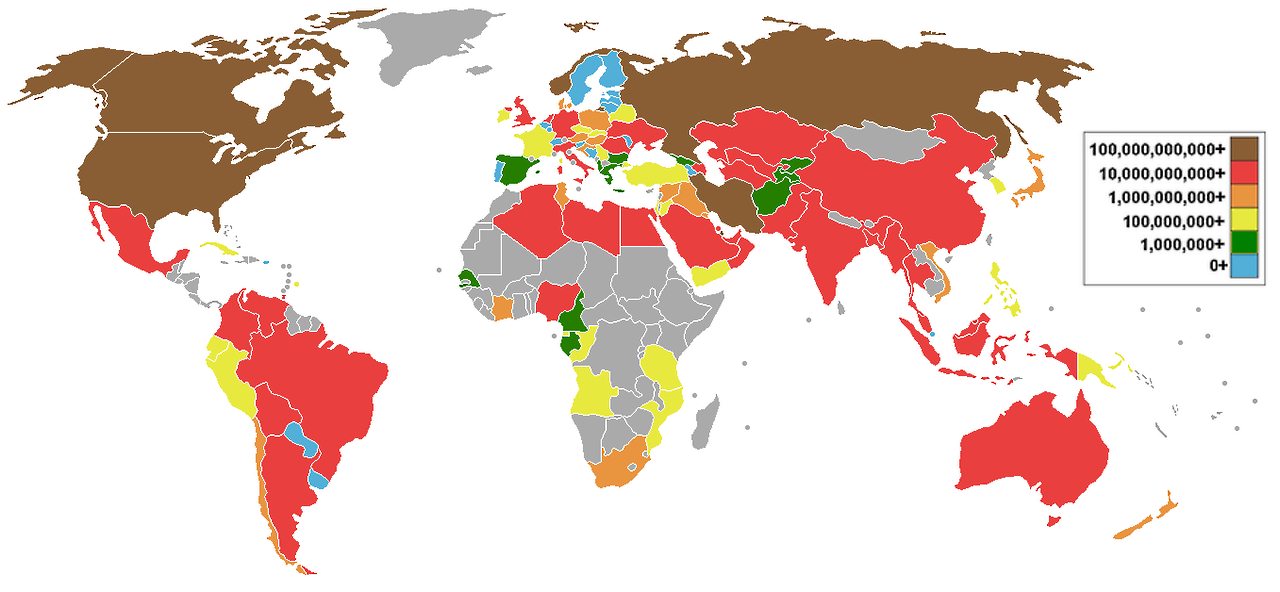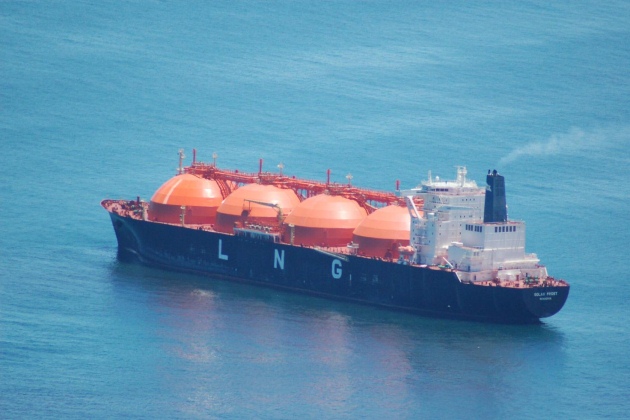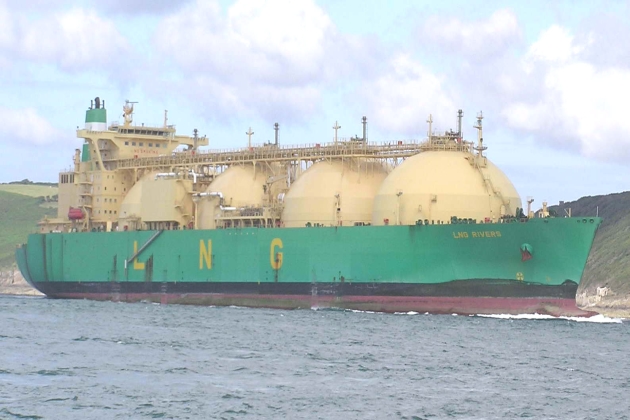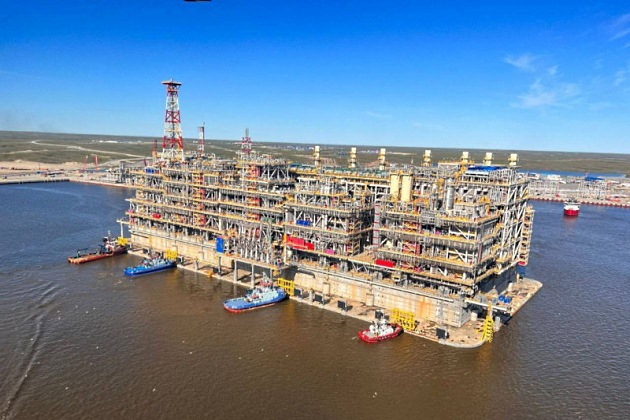In general, the government’s role is to set policies that define development objectives for the gas sector, establish institutions that set priorities, establish legal and fiscal frameworks governing gas and LNG development, and monitor governmental entities and private sector partners to ensure the rules and priorities are followed by all parties during development and operation of infrastructure projects. In some countries, projects are developed and operated by state oil companies, but, typically, LNG projects, whether they are developed by national or foreign investors, require access to specialized knowledge. In some cases, governments also directly participate in developing strategic projects and natural gas policy.
- Gas Policy and Regulatory Framework
- National Gas Policy as a Key Enabler for Gas Development
- Features of an Effective Policy and Regulatory Framework
- Elements of a Gas Master Plan
- Domestic Gas Obligation and Local Aspiration
- Legislation and Fiscal Regime
- Principles for Developing Country Hydrocarbon Investment Policies
- Key Elements of a Fiscal Regime
- Institutional Framework
- Stakeholder Participation
- Government Participation
- Roles of Regulator
- Capacity Building
- Training
- Transparency and Openness
- Technology Transfer
- The transfer of technology can be measured by answering the following questions
- Reasons for Technology Transfer in LNG industry
Rules, regulations, and procedures should be established, sometimes through the implementation or amendment of legislation or other agreements that have the broad approval of government authorities and its diverse constituencies/stakeholders. Rules, regulations, and procedures should be clear, consistent and transparent so that all stakeholders know what to expect from each other. Since it is expensive and difficult to store gas in strategic quantities, plans should also be in place to utilize gas received under domestic supply allocations to promote the development of power and other industrial projects.
Gas Policy and Regulatory Framework
Gas development would typically require:
- a national gas policy;
- a gas act or law that provides the overall legal basis for the gas industry;
- a gas master plan that develops an overall plan for gas utilization in the country.
National Gas Policy as a Key Enabler for Gas Development
One of the key challenges in the gas sector is the enactment of effective frameworks that define policy objectives for the sector and address and help prevent shortfalls in access and supply for both domestic and export markets. The government should provide an enabling environment to promote connecting infrastructure both to meet domestic demand and facilitate export.
Important outcomes that must be generated by an effective gas policy include:
- Gas deliverability: The government must ensure that key gas infrastructure across the value chain is properly planned and built in concert with planned power and industrial consumers. This can be achieved via non-discriminatory regulations to enable investment by domestic as well as foreign investors in gas infrastructure.
- Affordability of gas: Ensure equitable gas pricing both in the local market and the international (LNG export) markets if necessary to support government priorities. The government should also evaluate the need to establish floor prices to grow the domestic market by incentivizing gas suppliers.
- Commercialization of supply: Creating a policy that:
- Addresses the commercial requirements of gas supply for both local and export markets.
- Enables willing buyers to contract with willing sellers.
- Allows and protects commercial structures which enable alignment along the value chain.
- Facilitates secure offtake with long term back-to-back bilateral contracts that pass obligations and liabilities through to sub-contractors and partners and/or use of integrated business models throughout the value chain with creditworthy parties.
- Availability of gas: Balancing available gas resources in line with demand in domestic, regional and international markets and in line with key strategies in the gas master plan.
- Access to market: Supporting the right, but not the obligation, to directly access or invest in all parts of the market.
- Regulations: Must be clearly defined and agreed among all parties with regard to issues such as third party access, pipeline ownership, and tariff structures.
The above criteria will set the tone for necessary regulatory and policy frameworks for domestic and export gas supply through the gas master plan as well as the national gas policy. An effective policy and regulatory framework should start with clear objectives as captured in the gas master plan. The plan needs to provide directions for development of the legal and regulatory frameworks via the national gas policy such that the sector can align with gas master plan objectives. The plan needs to allocate gas utilizations across various gas sectors, such as domestic or export, so it can serve as a basis for investment decisions.
Features of an Effective Policy and Regulatory Framework
Facilitate effective project development/operation for all stakeholders
Both project development and operations for stakeholders are enabled through well-defined government policies and regulations. The government should seek to facilitate participation by local stakeholders such as communities, local government, and other entities.
Provide transparency, clarity of roles/responsibilities and ease of doing business
Business investment and foreign direct investment (FDI) inflows for gas/LNG development are supported by government legislation backing the provision of transparency, clarity of roles and clear responsibilities. The ease of doing business will continue to be a factor for private investment decisions in countries with very large gas resources. It is expected that the government should provide a conducive environment for gas project investment.
Minimize complexity
A good policy framework requires minimum complexity in terms of definition, application and usage. Minimum complexity is achieved when there are clearly defined gas policies that do not contradict or duplicate provisions in other gas documents such as the gas master plan.
Provide Clear and Consistent Monetary policy (exchange rate/ repatriation of profits, etc.)
Government must provide the necessary assurance that movement of profit from invested capital for gas projects or LNG projects are not subjected to restrictions. Repatriation of profits must be allowed if countries want to attract FDI or investors for their gas resource development.
Facilitate local gas utilization projects
Promotion of critical local gas utilization projects is vested within the gas master plan and is needed to ensure fast acceleration of the domestic gas market. It is, therefore, imperative for government to facilitate local gas utilization programs and policies.
Facilitate development of local infrastructure, either by government, public/private partnership, or private investors
Regulations should allow multiple options for developing gas infrastructure, either by government, public/private partnership (e. g. build-operate-transfer) or private investors.
Set out clear regulations for economic and social development outcomes for local communities
This is an important consideration for project sustainability. Regulations must carefully balance support for the local population with adding undue cost and delay to the project.
Hold stakeholder consultations
An important role of government is to engage and consult stakeholders in order to take into account their expectations and build a national consensus.
Elements of a Gas Master Plan
A gas master plan falls under the national energy policy that aims, among other objectives, to ensure energy security for the country. The elements of a gas master plan may include:
- Objective of gas master plan;
- Gas resource evaluation;
- Gas utilization strategy and options consistent with country’s energy policy;
- Domestic supply and demand analysis (power and non-power sector);
- Identification of other domestic “priority” projects;
- Infrastructure development plan/formulation;
- Institutional, regulatory and fiscal framework;
- Development recommendations about the volumes and revenues from gas finds and future gas production;
- Identification of possible mega or “anchor” projects. For example, a country with a large natural gas find might consider an LNG export project, or other similar industrial scale plant such as methanol, ammonia production, gas-to-liquids (GTL) projects and dimethyl ether (DME);
- Formulation of a roadmap for implementation of projects;
- Gas sector regulatory reforms;
- Socioeconomic and environmental issues associated with development;
- Gas pricing policy.
Domestic Gas Obligation and Local Aspiration
A tool to ensure appropriate allocations of gas resources for domestic and export use can be the establishment of a domestic gas obligation.
Reasonable and equitable domestic supply obligations to promote gas utilization should be carefully specified in the Gas Master Plan and aligned to the country’s national development plan. This should be based on a comprehensive analysis of the national and regional demand for gas together with a plan to develop the transmission infrastructure. The domestic supply obligation (DSO) is a major provision available to countries with gas resources to stimulate the development of the domestic gas market. The policy can allow domestic supply for the needs of gas as industry feedstock as well as fuel for power generation to support the economy. The percentage of DSO varies from country to country and should have the flexibility to allow for any unplanned delay in infrastructure development. For gas producers to satisfy DSO objectives:
- Mechanisms should be developed to allow for gas producers to meet or otherwise allocate (not meet) their domestic obligations when the infrastructure is not available in their operating area.
- Obligations should be reviewed on a regular basis.
Pros and cons of DSO
Pros
- A DSO provides opportunities for domestic gas market development.
- A DSO helps to stimulate the economy through provision of energy supply. Energy supply is directly proportional to GDP growth.
- A DSO helps to meet domestic demand of gas-based industries.
Cons
- Depending on the mechanisms adopted, a DSO may constrain the development of a sustainable gas market if the DSO institutionalizes high subsidies or the development of infrastructure that would not otherwise be economic.
- Local obligation supplies often come at the expense of export market revenues.
Legislation and Fiscal Regime
The host government first needs to define long-term policy objectives for the exploitation of natural gas resources. These could include sustaining government revenues, increasing access to the generation of power, establishing industrial developments, and so on. For investors considering potential investments in the gas/LNG sector of a developing country, a critical element in the investment decision is the country’s hydrocarbon legislation. That legislation creates the legal environment within which investors may explore, develop and produce the country’s hydrocarbon resources.

Source: en.wikipedia.org
In some countries, legislation is more general and broad and leaves details of the fiscal, taxation, and other pertinent terms to be addressed in the agreements between the host government and the investors via instruments such as production-sharing contracts or other agreements. In other countries, legislation is more detailed, in which case the agreements may be less comprehensive and still adequately cover the required fiscal and regulatory framework. In cases where the country’s legislation is in early development stage or does not adequately cover the gas/LNG sector, a specific project law is often put in place or the law must be amended in addition to the above-mentioned agreements in order to ensure stability and enforceability of the fiscal and regulatory terms agreed among the government and the investors (e. g. PNG, Qatar, and Australia). For LNG projects, such project-specific law authorizes the export of gas as LNG, and facilitates and incentivizes investment in the LNG plant and related export facilities. Regardless of the approach (via a combination of legislation and agreements), the objective is to create a stable and viable investment climate to underpin substantive and continued investments, usually spanning decades, in the country’s hydrocarbon sector.
A number of non-profit organizations have developed guidelines that can be accessed online for policy and regulatory framework formulation. Some of these organizations also provide technical assistance.
Principles for Developing Country Hydrocarbon Investment Policies
The overall fiscal and regulatory structure should begin with an alignment on valuing and recovering resources in a manner consistent with the country’s framework for economic development.
Create the greatest overall value from the country’s resources by generating:
- Value through the maximum life-cycle economic recovery of resources consistent with the most efficient, safe and environmentally sound development and decommissioning/restoration practices.
- Growth in local economies as part of value creation via development of local infrastructure, industries, jobs, and training.
- Revenues for the country (including all governmental stakeholders) to reinvest.
Be equitable both to government and investors:
- Ensure the government, as ultimate steward of the resources, receives for the country an equitable share of the benefit from those resources.
- Provide that investors receive a share reflecting all of their contributions and commensurate with the overall risks they bear.
Align government and investing companies through project life:
- The regime should be responsive such that equitable sharing of value is realized through all stages of a project life-cycle and across ranges of outcomes and market conditions.
- Recognize that projects and relationships are long-term and thus seek ways to promote partnership and mutual trust.
Promote a stable and sustainable business environment:
- Country and investors should be able to plan ahead and rely on terms agreed upon.
- Investors should be willing to manage and accept business risks (e. g., exploration, technical, project execution, operation, market, price, and costs) and the country should seek to provide maximum possible certainty on rights and economic terms (e. g., rule of law, contract terms, legal framework, land access or ownership, and fiscal terms).
- Country and investors should operate in good faith to solve potential disputes quickly and efficiently and adopt mutually-agreed dispute resolution procedures, such as mediation and/or arbitration practices, which lead to principles-based, timely resolved and satisfied outcomes.
Be administratively simple:
- Provide a clear, practical, enforceable, and non-discriminatory framework for the administration of laws, regulations, and agreements.
- Adopt programs promoting cooperation and trust between tax administrators and taxpayers.
Be competitive:
- Should be competitive with other countries, given the relative attractiveness and risks of resource development.
- Should attract the widest range of potential investors to ensure a country maximizes competition for its resources.
Specific proposals and policies, including the structure and administration of taxation, percentage comprising other government take, and legal requirements, should be tested in terms of whether they further the general objectives above.
Finally, it is worth noting that the overall legal framework of the host country, including bilateral investment treaties, regional and other multilateral treaties and free trade agreements, are all part of the framework within which an agreement between a host country, its broader constituencies, and an investor resides. The legal standing of a contract in relation to a country’s laws is an important consideration. Contract and revenues stability are paramount in establishing a viable investment in gas/LNG, which is generally the case for large-scale, long-term investments.
Key Elements of a Fiscal Regime
The objective of a fiscal regime is to provide a framework for an equitable sharing of revenues between the investors and the host government. The key elements of a fiscal regime governing the exploration, development, and production of a country’s hydrocarbons are covered either in legislation or agreements between the host government and the investors. Such elements may include the following but are not limited to:
- Signature bonuses;
- Production bonuses;
- Royalties;
- Corporate income taxes;
- Sharing of production;
- Special petroleum taxes incentive;
- Custom and import duties;
- Value added tax Pioneer status Tax holiday.
While there are different types of fiscal agreements, such as production sharing contracts and concession agreements, the basic objective is the same, which is to provide certainty on how costs are recovered and profits are divided between the host government and the investors.
Institutional Framework
An effective gas industry governance and institutional framework is required to ensure good governance and will be a crucial step to promote investor confidence in the development of gas resources, whether for LNG or for the domestic market. The government needs, through legislation, to define clear institutional arrangements to effectively manage the sector.
Particular consideration should be given to the clarification of roles among the various institutions. In some countries, there is a need for innovative institutional arrangements or reform. One potential beneficial institution is a one-stop shop for visas, permits, licenses, and approvals. An alternative to a one-stop shop is reform that streamlines these processes. Particular attention should be given to streamlining the number of institutions responsible for managing funding/finance, permits and authorizations, local content, community development, sustainability, contracts, fiscal regimes, and regulation. This requires the government to also clarify roles without merely creating new institutions to compensate for the ineffectiveness of old structures.
Requirements for visas, permits, licensing and approval must be transparent for all investors.
Stakeholder Participation
Aligning the interests of stakeholders is a key to the success of any major project. Stakeholders in a project include the host country represented by the government and, where one exists, the national oil company. Private investors, project contractors, and the local community are other key stakeholders. The greater the number of stakeholders in the project, the greater the effort that will need to be devoted to ensuring alignment of interests and expectations, and this may lead to complexities, delays and cost overruns. It is, therefore, desirable to manage the number of core project stakeholders to ensure that the project can be developed in a timely manner. Clear policy guidance from the government is also required so all stakeholders understand the basic expectations they should have of the project partners and of local and national government authorities.
The local community generally participates by taking advantage of the opportunity to provide goods and services and by benefiting from training and employment opportunities in the construction and operational phases.
Read also: Basics of safety on gas carriers
The government should ensure that social responsibility agreements and policies are implemented. Local community participation can also take the form of community input generally provided in the regulatory permitting process. On some occasions, if the government and community desire, the community can participate as an investor. In addition to initial input, generally, there are other opportunities made available for ongoing community input at various points, such as at scheduled community forums.
The government also plays a role, in conjunction with the project company, in managing local expectations by providing information on the timing and status of project implementation, from the planning stages on through to final implementation. The government plays an important role through the demonstration of support for the project and creation of a national consensus in favor of the project and its implementation.
Government Participation
Strategic government participation in the project is crucial. Government support in many countries is critical to gaining access to land and proper approvals. Government participation in a gas project, especially an LNG export project, may be of significant assistance in all phases of the project, improving project credibility by visibly showing government support, and perhaps also improving alignment along the value chain.
Governments may require government participation in LNG export projects. Government equity participation is generally through the national oil company owning a share in the LNG company that has been established for the project. Countries can also invest directly in projects without creating a national oil company. Examples of NOC investment in consortia include Qatar Petroleum Company (QPC) ownership participation in Qatargas and Ras Laffan Liquefaction (Ras Gas) companies in Qatar and Sonangol in Angola LNG. In these cases, the government entity provides its share of the investment and participates in the financing and profits from operations after the project is completed. Often the government share can be financed by partners but that may also influence the distribution of profits since this carried share must be repaid to the other partners over time by the government. If the government is unable to pay its share, this can cause misalignment with project partners later in the project.
Governments may also receive revenues from the projects through percentages of sales, taxes and/or fees as outlined in the agreements without the expense of standing up or supporting a state company, as is the case in many countries, such as the United States.

Source: Freeimages.com
For domestic gas and power projects, government investment may also be required to provide an initial platform for subsequent growth. Infrastructure investments such as gas transmission pipelines and gas distribution systems typically require initial government investment, particularly in countries with minimal existing infrastructure. Generally, power generation and electric distribution systems are initiated by government entities.
However, some power generation projects, such as IPPs, are done with private participation. When the sector and regulations are more developed, private companies can build and operate whole integrated systems, at which point the government participation may be reduced to regulation and the collection of taxes and fees.
As projects for which government has provided the initial investment near the point of becoming economically self-sustaining, there is then the opportunity for the government to divest the project through privatization.
However, projects that are subsidized by the government will often require legislative and subsidy reforms before they can be successfully privatized.
This is due to the difficulty in attracting private parties to an asset that may not be self-sustaining economically at low subsidized prices without financial support from the government. The infrastructure might also suffer from under-investment – requiring large capital infusions from, and higher profit margins for, the private investor.
Roles of Regulator
The government ideally should empower an independent regulator to oversee, supervise, monitor and advise the government on project approval and implementation. The regulator should play a key role in monitoring industry players to ensure that government objectives and established rules and regulations are followed. The regulator may also help to formulate incentives for sector development in coordination with the legislature and other parts of government and would monitor their implementation. A further role may also include the provision of data and general information as a way of facilitating understanding of the sector and regulations.
It will be interesting: Overview of the Carriage of Liquefied Gases by Sea
The independent regulator should have a role monitoring the sector across the whole value chain. If there are separate regulators for upstream, downstream, midstream, and/or electric power, they should coordinate closely and roles and responsibilities of each should be clear. The regulator often has a role in setting tariffs across the value chain. Tariff formulas must be reviewed frequently by expert staff with sufficient public consultation to account for changes in the market and to allow for the maximum alignment of stakeholders. The regulator may also have a role in setting and monitoring the collection of taxes and fees but the nature and extent of these taxes and fees must be clear and consistent and not arbitrarily or randomly imposed.
Capacity Building
Countries with new natural gas resource discoveries, or those looking to start or increase the use of natural gas, may not have the requisite technical and commercial capacity required to develop their resources or capture and preserve the benefits of resource development.
Furthermore, these countries may have existing laws that govern development but may not have the institutional capacity or skilled workers that will be needed to successfully develop a large natural gas resource or form a viable domestic natural gas industry. Capacity building is intended to bridge that gap and to build the capabilities and knowledge of government officials to negotiate with confidence and on an equal footing with project developers. Capacity building also helps government officials make informed decisions concerning the country’s resources and how to develop them to benefit their citizens and improve the economic situation in the country – not only for the short term but for generations to come. Another goal of capacity building is to create a ready pool of educated, trained and informed personnel to feed into the labor force for future projects.
Training
For local content participation to be effective and sustainable, there needs to be a deliberate policy that requires building the capacity at various levels within the country, such as national and local government officials, and the private sector including small-to-medium enterprises (SMEs). Training for national and local government officials should be targeted at a better understanding The role of the government in ensuring the development of the gas sector, key factors and principlesof natural gas projects to facilitate regulatory and environmental permitting processes. Private sector training should include strategies for project development including effective contract negotiations as well as overall project management to provide the needed trades, professional services, and goods.

Source: Freeimages.com
Specific skills need to be identified as early as possible in the planning of a project to allow training to be organized and provided to meet project schedules. The capacity building effort should galvanize support from other stakeholders such as government, academia, and subject matter experts. It is important that the qualification of the intended service providers and the quality of the goods supplied are consistent with the requirements of the project with appropriate evaluation and monitoring protocols in place.
The training could be delivered through a combination of formal instruction, (both locally and abroad), and supervised on-the-job-training (OJT). It can be provided or facilitated through various means and may require a partnership of academia, government, foreign government experts and other subject-matter experts. The training should be considered along the entire value chain with emphasis on the appropriate delivery for the needed goods and services. For The International Trade LNG and LPGLNG export and import projects, training should be considered in the initial assessment of the project’s economics and viability, through to the engineering, procurement, construction and project commissioning phases.
Read also: Process of Liquefied Natural Gas regasification
Trained personnel should be gradually absorbed in appropriate phases of projects to provide them the opportunity to bridge theory and practice. On-the-job-training opportunities should be designed to have minimum disruption on a project’s workflow.
Transparency and Openness
Achieving successful development of domestic gas infrastructure and LNG plants is a complex process that requires communication, transparency, and ongoing dialog among host governments, local governments and stakeholders, and industry. Conflicts are naturally going to arise at various times during development and operations due to unstated or unfulfilled expectations or failures to meet projected schedules or goals. Creating open formal and informal lines of communication is important to jointly address problems at an early stage as they arise. This builds trust between parties that will enable them to work through more difficult problems later.
These dialogues can prevent roadblocks that could lead to costly delays in development and other potential legal remedies. It is important to recognize that the host government and project developers are not adversaries, rather they are partners that are both responsible for natural gas development. Neither can accomplish the end result without the other’s help. Capacity building creates common understanding, which is the foundation of any partnership.
Technology Transfer
Host countries may want to put in place policies that ensure the sharing of skills, knowledge, data, expertise and technologies in the oil and gas sector between expatriate and foreign oil companies, government officials and the local workforce, known as technology transfer. These policies are used to ensure that areas of expertise that are new to the country’s workforce are shared with the local workforce. Technology transfer is closely related to knowledge transfer, but not in totality.
Technology transfer is a vehicle for bridging the gap in knowledge and expertise from LNG investor expatriate staff to the local workforce. Often, technology transfer can take the form of on-the-job training or learning through doing.

Source: Foter.com
In a specialized industry like LNG, the host country workforce often does not have the requisite knowledge, know-how or technical skills to participate in a project. In order to achieve human technology transfer, the host country may sign a technology transfer agreement with the LNG investor. The agreement provides that technology transfer will occur within a specified time frame for local workforce knowledge and expertise development. A government agency (or agencies) can be assigned responsibility for ensuring measurable, clear, consistent and time-bound compliance by the LNG investor with the technology transfer agreement commitments. Technology transfer is developed through conscious and sustained efforts by both LNG investors and government.
The transfer of technology can be measured by answering the following questions
- To what extent are increasing technological capabilities of the host country workforce reflected in terms of expertise in the LNG/gas plant technology?
- To what extent has technological learning and technical expertise influenced the performance and know–how of the local workforce?
Reasons for Technology Transfer in LNG industry
- The drive to bring awareness and develop necessary capabilities in the local workforce by the host government.
- The need to put a deliberate strategy in place for succession planning from expatriates to the local workforce of the host country.
- The need for human capacity development for the host country through an LNG project development.

